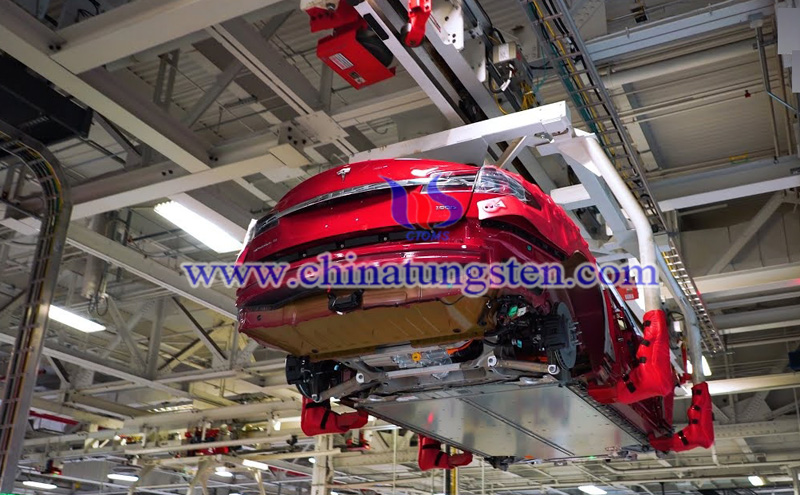Tesla Is Set to Build Its Battery Cells
- Details
- Category: Tungsten's News
- Published on Wednesday, 19 February 2020 20:57
For months, Tesla has been rumored to be working on making its battery cells for its electric vehicles. A recent report from the electrek seems to confirm the news. The electric car maker is building a pilot battery cell manufacturing line in Fremont and designing its equipment to produce the cells.
As we all know, Tesla's acquisition of Maxwell, a supercapacitor manufacturer with battery cell technology, and later at its annual shareholder's meeting, the company hinted it might start producing its batteries.
Not long ago, the company acquired Hibar Systems, a Canadian company specializing in the production of battery cell manufacturing equipment. It is an important supplier of primary and secondary production lines for battery cells, providing professional equipment for all aspects of battery manufacturing.

Currently, Tesla buy cells from Panasonic made in Japan for Model S and Model X, as well as cells made by Panasonic at Tesla's Gigafactory 1 in Nevada for Model 3. The automaker used those cells, which they help design, to make their modules and battery packs, but they have never produced their cells.
The company has previously confirmed that the planned German super factory in Berlin will also produce cells in the future, but it is unclear whether it will cooperate with other battery manufacturers or produce it independently.
When the battery couldn’t meet the needs of long-distance and continuous driving, the development of "super batteries" becomes a top priority. The company cooperated with Dalhousie University in Canada and applied for a new lithium-ion battery technology patent on December 26 last year.
Dalhousie University reached a five-year research partnership agreement with the company in 2015 to develop advanced lithium-ion battery technology. The university is an international leader in research on advanced materials and clean technologies. They aim at increasing battery life and energy density and reducing costs.
Led by physicist Jeff Dahn, one of the world's most prominent lithium ion researchers, the Dalhousie research team described in a paper published in Electrochemical Society that a lithium-ion battery that “should be able to power an electric vehicle for over 1 million miles" while losing less than 10 percent of its energy capacity during its lifetime. They noted their battery could be especially useful for self-driving robotaxis and long-haul electric trucks, two products the company is developing.
The new lithium-ion battery technology patent applied by Tesla Motors Canada Branch last year is called "Dioxazolones and nitrile sulfites as electrolyte additives for lithium-ion batteries”, which is also the use of Dioxazolones and Nitrile Sulfites as electrolytes for lithium-ion batteries additive. New patents can be used to improve efficiency, energy density, and lifetime, and they are less expensive than current lithium-ion batteries.
In April 2019, Musk claimed that Tesla's electric cars could guarantee a million-mile life in the future, more than double the life of existing batteries. If this patent is indeed to fulfill the promise of a million-mile battery, we can expect it to retain 95% of its life after 1000 discharge cycles. Although we are not sure whether this patented technology can fulfill Musk's promise, it is clear that if the battery cells of the "super battery" are released, it will have a significant impact on the electric vehicle industry.
- Tungsten Manufacturer & Supplier, Chinatungsten Online: www.chinatungsten.com
- Tungsten News & Prices of China Tungsten Industry Association: www.ctia.com.cn
- Molybdenum News & Price: news.molybdenum.com.cn
- Tel.: 86 592 5129696; Fax: 86 592 5129797; Email: sales@chinatungsten.com



 sales@chinatungsten.com
sales@chinatungsten.com